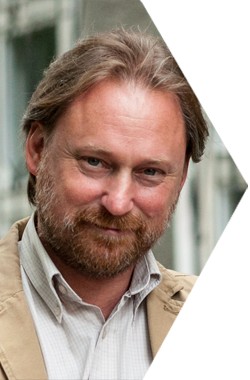|
Is the Pope the East's Friend or Foe?
THE Russian media's attention to the pope's foreign trips is intensifying as recent papal visits form a ring around Russia. The five-day visit of John Paul II to Ukraine has resonated widely through Russian society. This is in no small measure due to the fact that in making his trip to Ukraine, the pope for the first time disregarded one of his main rules and did not first win the agreement of the country's largest Christian denomination, the Ukrainian Orthodox Church of the Moscow Patriarchate. Is the pope friend or foe? Behind that question lies fear, pain and hope. In the Orthodox world, it causes deep divides within society and splits national elites. The political establishment in Ukraine interprets the pope's visit as one of the symbols of the Western world's recognition of the country, an important sign of its integration into the Western world. In the words of Ukrainian Foreign Minister Anatoly Zlenko, the visit testifies to "the unconditional recognition of Ukraine by the Holy See and the international community," while at the same time it "confirms the path of Kiev toward European integration." Comments in the same spirit were made earlier by the political leaders of Romania and Georgia where the pope made his first visits to traditionally Orthodox countries in 1999. But members of the Orthodox Church, both from the hierarchy and simple believers, when asked the question "friend or foe?" have answered unequivocally, "of course, foe." Because - such is their centuries-long memory - in places where Catholics gain power, the Orthodox expect oppression and even forced conversion. Orthodox Greece will not forget the Fourth Crusade, which ended with the establishment in 1204 of the Latin patriarchate in Constantinople and the institution of Catholic dioceses on continental Greece accompanied by the coercive subjugation of the Orthodox congregations by the Latin bishops with the help of the state. Ukraine remembers the crushing of the Orthodox dioceses and forcing of the Orthodox into the "Unia" with Catholics - i.e. subjugation to the Roman See at the end of the 16th century. And Russia remembers the mission of Cardinal Michel d'Herbigny, a French Jesuit who in the 1920s tried to take advantage of the Bolsheviks' persecution of the Orthodox Church to expand Catholicism to the East. In other words, undisguised proselytizing of Orthodox believers has been a consistent policy of the Vatican toward Eastern Christianity. For the sake of fairness, it should be said that last month, during his visit to Greece, the pope apologized for the Fourth Crusade. And although on his first day in Ukraine, John Paul II said he had no intentions of proselytizing during the visit, how can one explain the refusal of Catholics to discuss proselytism, even theoretically, at joint theological discussions with the Orthodox Church? The Orthodox hierarchy has no illusions about the future. Metropolitan Agafangel of Odessa and Izmail, one of Ukraine's leading pro-Moscow bishops, said that "the semblance of peace between Orthodox believers and Greek Catholics, which supporters of the visit have spoken about, represents an attempt to construct a peace without justice, which will never be a truly Christian peace and will seal for many years the Uniates' 'achievements' in their struggle against the Orthodox Church." And Patriarch Alexy II said bluntly a few days ago: "The pope's visit to Ukraine could irrevocably close the door to an improvement in relations between Orthodoxy and Catholicism." Orthodox groups in Ukraine call the papal visit "a desecration of the sacred soil of Kievan Rus," and an anti-Catholic demonstration in Kiev two days before the beginning of the visit drew 10,000 participants. Nevertheless, the hierarchy of the Russian Orthodox Church has asked believers to refrain from protests during the pope's visit and no one is likely to violate that order, even more so because the Ukrainian special services have taken unprecedented security measures. But at the same time, Orthodox believers are not able to overcome the ambivalence in their attitude toward Catholics. On the one hand, Catholics are seen as heretics, but on the other, they maintain an intellectual leadership in the Christian world. Orthodox experts relied on the Catholic experience in devising the Orthodox Church's first social doctrine and building a new model of church-state relations in Russia. Even in a harsh statement, a Moscow Patriarchate spokesperson acknowledged that the "social activity of the Catholic Church, its care for the helpless and deprived, can only inspire respect." What is surprising is that from the moment the pope's visit to Ukraine became inevitable, the position of the Moscow Patriarchate has not changed. This irritates the Vatican. "The Russian Orthodox Church, opposing the visit of the pope to Ukraine, is falling behind the train of history," said Vatican spokesperson Joaquin Navarro Vals. Why does Pope John Paul II so strongly desire to travel to Orthodox countries despite the breakdown in theological discussions with the Orthodox? Perhaps not the least because Catholicism is steadily losing its position in Western Europe and the Vatican is concerned with preserving its influence. It is essential to attract new believers and if that is not possible in Western Europe, then why not make more active attempts to convert the Orthodox? In an interview not long before his death, Sir Steven Runciman, a British diplomat and scholar, said: "Sometimes I feel great disappointment with Western churches. However, I am happy in the thought that within 100 years, the Orthodox Church will be the only historical church that will be strong. I believe it offers people genuine spirituality, which other churches can no longer provide." That historical optimism, unexpected in the context of a secular society, is typical of most Orthodox believers today. And Pope John Paul II wants to partake of this optimism.
|
|

Сергей Чапнин
христианин, журналист, фотограф